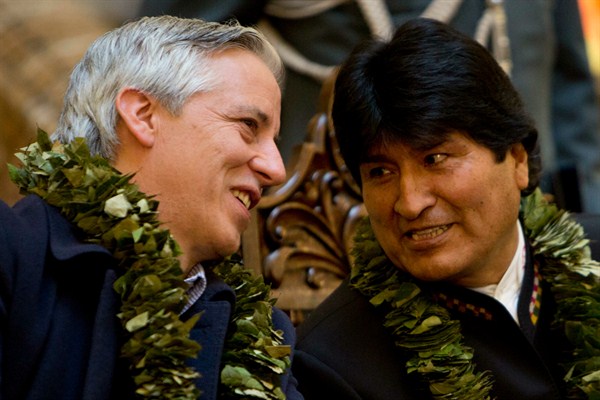Last month, Bolivia passed new coca and drug control laws that marked another milestone in the independent—but to his critics, controversial—drug policy fashioned by President Evo Morales’ government. A decade in the making, the laws “were an essential step because the former drug law was imposed by the U.S.,” the vice minister for social movement coordination, Alfredo Rada, told the local press. He was referring to a 1988 law pushed by the United States that limited the production of coca—the main ingredient in cocaine—and carried harsh penalties for illegal cultivation.
The new coca law nearly doubles the area for legal cultivation of coca in Bolivia to 22,000 hectares, or nearly 55,000 acres. It legitimates the existing 20,000 hectares of coca fields that have been informally permitted since Morales, a former coca farmer who has been the head of the Bolivian coca grower’s union since 1996, was elected president in 2006. The government had arrived at that specific 20,000-hectare amount by multiplying the quantity of coca allowed per registered grower under a 2004 accord by the number of registered coca farmers.
A minority of Bolivia’s 75,000 coca-growing families initially resisted the new legislation by rocking the streets of the capital city of La Paz with daily demonstrations in February, until the Morales government agreed to add 2,000 hectares to the 20,000 limit. According to Carol Conzelman, an anthropologist at the University of Colorado, “These coca farmers refuse to relinquish their privileged position as growers approved for local consumption that the former law granted them.”

